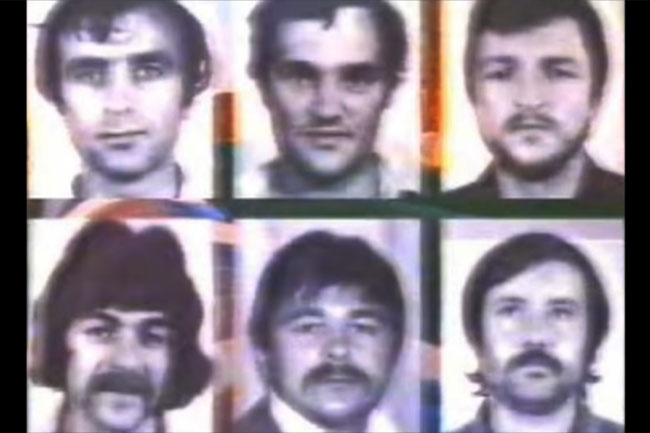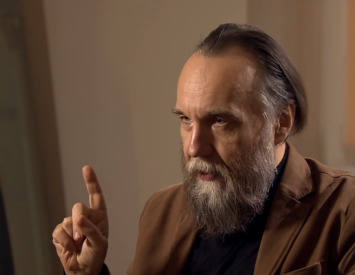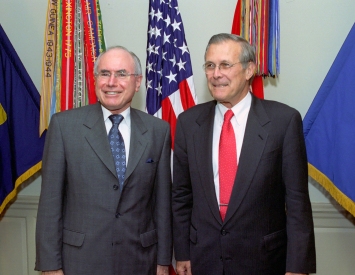There is more to the story of how the first World War began than what the history books tell us, including the involvement of a terrorist group known as the Black Hand, writes Branko Miletic.
AT 11 AM ON NOVEMBER 11, the world will celebrate the centenary of the end of World War One, a conflict that killed 17 million people – 10 million of them soldiers – destroyed three empires and changed the world forever. Despite the passing of a century, it’s also a conflict whose repercussions are still felt today.
Much has been written on the causes of this “war to end all wars” – nationalism, imperialism, trade, monarchic rivalries and so forth – however, the war’s exact causes have not only been ignored, they have actually been airbrushed out of history.1
According to standard history texts:
The immediate cause of World War I was the assassination of Archduke Franz Ferdinand of Austria-Hungary. In June 1914, a Serbian-nationalist terrorist group called the Black Hand sent groups to assassinate the Archduke in protest to Austria-Hungary having control of this region. Serbia wanted to take over Bosnia and Herzegovina. This assassination led to Austria-Hungary declaring war on Serbia and when Russia began to mobilise due to its alliance with Serbia, Germany declared war on Russia. Thus began the expansion of the war to include all those involved in the mutual defence alliances.
To this day, one of the Black Hand’s assassins, Gavrilo Princip, is still considered as a “great hero” in Serbia, where statues of him were erected in 2014 to honour his “heroic deed” a century earlier.
The question of why the full story is rarely told is in itself a mystery wrapped in an enigma, which only adds to the conundrum surrounding this conflict.
To give a contextual background as to why Serb resentment was at boiling point against Austria-Hungary, most historians use a version of the following:
As the Ottoman Empire declined…the Serbian Government had begun to hope that it might lay its hands on part of its Balkan territories, including Bosnia. In 1908, however, Vienna, acting with uncharacteristic boldness, suddenly closed off that particular aspiration.
The terrorist group that the assassin Princip belonged to, the Black Hand – also called “Unification or Death” – was not some obscure group operating out of a cave somewhere.
It was headquartered in Belgrade and financed by the Serbian Government and was run by the head of Serb military intelligence at the time, Colonel Dragutin Dimitrijević.
To put this in a modern-day context, the relationship between the Black Hand and the Serbian state was akin to the relationship between Iran and Hezbollah, except that Tehran and its Lebanese Shiite proxies are not as dependent on each other.
It had its fingers in numerous bloody conspiracies, nearly every one of which was calibrated to help spark a wider European conflict.
In 1903, Dimitrijevic and his Black Hand killers brutally murdered the Obrenović dynasty’s first royal couple, King Alexander and his wife, Queen Draga, who they saw as being “too cosmopolitan”.
In 1907, they launched a bombing campaign in neighbouring Montenegro, while in 1910 the group was behind the unsuccessful assassination attempt on Bosnian governor Baron Marijan Varešanin — a precursor to the assassination in Sarajevo four years later.
The Black Hand also helped facilitate Europe’s first modern-day genocide — the mass killing of Albanians by the Serbian army in 1912.
This event, resulting in some 25,000 dead – 120,000 say the Albanians and now conveniently forgotten by most historians – made the front pages of nearly all the major newspapers of the day such as the New York Times and cemented the reputation of one young Russian-Jewish journalist called Leon Trotsky.
This is why the Balkans gained a similar notoriety as the Middle East does today as the centre of conspiracies and violence.
But all this bloodletting had a clear logic — expansion of Serbia at the expense of her neighbours, the same reasons for the start of the Balkan wars of the 1990s.
However, after Princip fired those fateful shots, whether or not England and Germany were in colonial competition or whether there was a need to stop Austro-Hungarian expansion became irrelevant.
The events of 28 June 1914 in Sarajevo provided their own momentum.
Robin Harris, former advisor to former UK Prime Minister Margaret Thatcher, wrote in a 2014 article titled ‘Sarajevo: Where the century of terror began’:
Most importantly, the whole Serbian state apparatus, within which — then and since — one must include prominent intellectuals and key elements in the Serbian Orthodox Church, was fully behind the broader strategy of “liberating” the South Slavs to include them within what amounted to a Greater Serbia (by whatever name). In that regard, the Austrian authorities were fully justified in blaming Serbia.
To this day, Serbia’s behind-the-scenes role in starting the Great War has been so effectively downplayed that even modern-day historians insist that the English King, German Kaiser and Russian Czar – all good friends, close cousins and, apart from the British monarch, all near-absolute rulers – somehow overnight turned on each other and had no power to influence the political events in their own realms.
Perhaps historians in the U.S., UK, Australia, NZ, France and Canada don’t like to be reminded that combined, they sacrificed over 2.5 million young men in the mud-filled trenches of the Somme and on the beaches of Gallipoli for what was basically someone else’s attempt at a land grab.
As politician, diplomat and spy for both the French and British secret services, Henri Pozzi wrote in Black Hand Over Europe:
‘10 million men have paid for Pan-Serbianism with their lives.’
But all this sacrifice may well have been for naught. In October 2018, the Serb entity of Bosnia voted overwhelmingly for nationalist candidate Milorad Dodik, who openly campaigned for unification with neighbouring Serbia.
For the past century, Western historians have obfuscated the fact that a significant proportion of Europe’s young males were annihilated to aid an expansionist third-rate Balkan satrapy — one that went on to start four more wars in the same century and, to this day, remains a centre of regional instability.
It seems that 100 years later, the Black Hand’s shadow still hangs over Europe.
Damn Serbia back at it again with the Black Hand pic.twitter.com/uqTlN6JJni
— David MacMurchy (@david_macmurchy) February 25, 2016
Branko Miletic is a journalist, editor, historian and author who has written extensively on the wars in the Balkans and post-Yugoslavia politics for the past 20 years. You can follow Branko on Twitter @journovox9.
 This work is licensed under a Creative Commons Attribution-NonCommercial-NoDerivs 3.0 Australia License
This work is licensed under a Creative Commons Attribution-NonCommercial-NoDerivs 3.0 Australia License
Support independent journalism Subscribe to IA.












